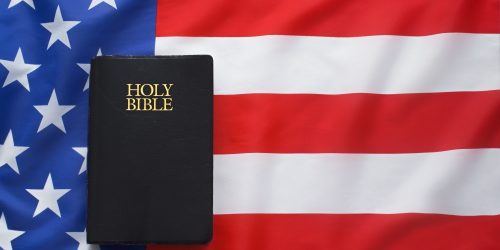
Is it legal for a state to provide funding to religious schools?
The issue of public funds being used to support religious schools has been around for over 150 years. During the 1870s, U.S. congressman and speaker of the house, James Blaine, proposed a constitutional amendment to outlaw government aid to educational institutions that had a religious affiliation. Although the constitutional argument for the legislation was to defend the separation of church and state, the idea was also seen as motivated by anti-immigrant and anti-Catholic bias. The Blaine amendment ultimately did not become law, but many states established their own Blaine amendments, prohibiting states from funding religious schools. In fact, up until recently 38 states passed their own versions of Blaine amendments.
Recently, many Blaine amendments across the country were struck down in the U.S. Supreme Court’s decisions in the 2020 case of Espinoza v. Montana Dept. of Revenue and the 2022 case of Carson v. Makin. In those cases, the Supreme Court held that it is a violation of the First Amendment’s free exercise clause for states to place restrictions on state scholarship programs or school vouchers that are offered to private schools just because students want to use them to attend religious private schools.
Instead, state funding programs must be neutral regarding religion. The court emphasized in both cases that states do not have to subsidize private education. However, once a state decides that it is going to subsidize private education it must do so in a way that doesn’t discriminate against religious schools. The dissenting justices cautioned though that these decisions eroded the principle of separation of church and state and the First Amendment’s establishment clause in requiring states to fund religious institutions.
However, just because states can’t exclude religious schools when they provide funds to other secular private schools it doesn’t prevent a state from attaching strings to the funding. For example, after the Supreme Court’s ruling in Carson, the state attorney general now requires that schools receiving funds follow Maine’s LGBTQ nondiscrimination requirements in student codes of conduct in teacher hiring. This requirement in essence precludes many religious schools from receiving the state funds.
Although recent Supreme Court cases have weakened states’ Blaine amendments, this will likely not be the last that we see states grappling with whether, how and under what conditions they will provide funding to religious schools.
Jennifer Gray Woods is the lawyer for the Lake Union Conference, as well as the Public Affairs and Religious Liberty director.